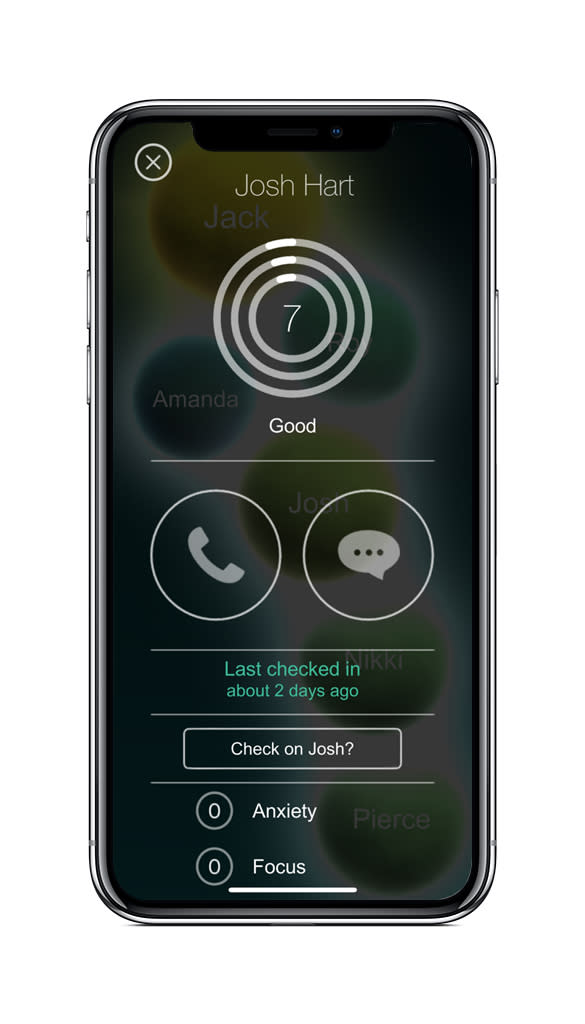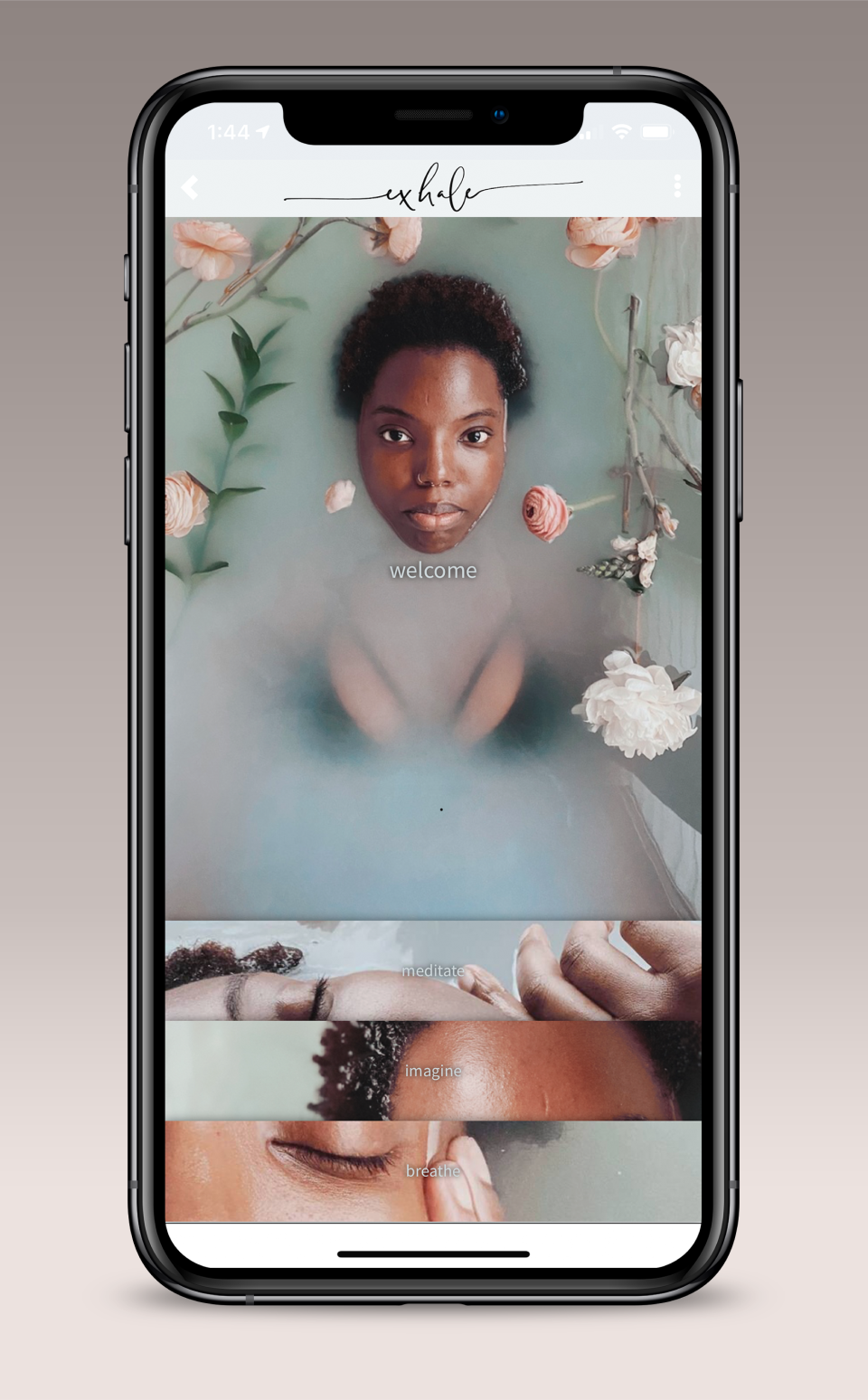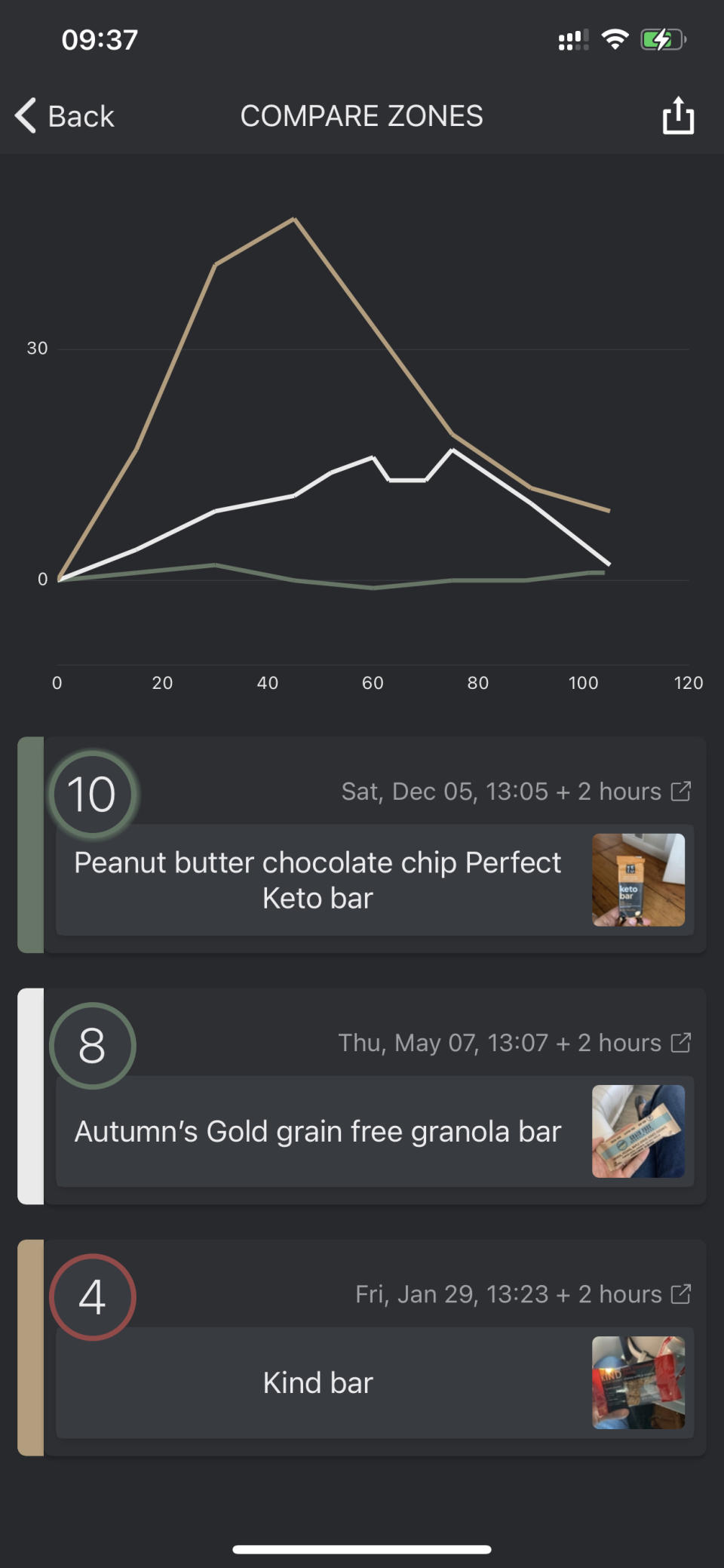Wellness Watch: How Technology Is Impacting Wellness

Gen Z was born in the digital world, so it only stands to reason that the way they approach wellness transcends traditional frameworks and options and veers into the technology realm. And currently, many of those alternatives lie within innovative health and wellness apps that tap into their penchant for community, gaming and virtual interaction.
“Any service that Gen Z is looking to receive, the digital space would be 100 percent in that pipeline of potential options,” said Sinéad Bovell, futurist and founder of Waye. “In fact, they’re more likely to go there first over something that’s purely in the physical world.”
More from WWD
According to App Annie, the mobile data and analytics company, a recent study found that 98 percent of Gen Z consumers own a smartphone, on average receiving their first at age 10. Gen Z spends 4.1 hours per app per month on the top 25 apps, excluding games.
Whatever the activity, Gen Z is as likely to turn to their phone to handle it. Take matters of health. Young people are as likely to turn to their phone as to the closest urgent care when questions arise. “The data around Gen Z preferring telehealth hovers at about 40 percent,” Bovell said. “Gen Z, in particular, as it relates to telehealth and wellness, not only opt for these channels in a digital capacity, they also consider receiving care.”
Self-guided mental health tools are a critical part of Gen Z’s toolkit, too. According to YPulse, a research and insight company specializing in Gen Z and Millennials, one in three young people have tried a mindfulness, mediation smartphone app in the last year to combat stress and anxiety, and a third are interested in trying one.
“Gen Z is precocious generally when it comes to categories in both wellness and beauty,” said Lucie Greene, trend forecaster and founder of Light Years, who cited the hypnotherapy app Clementine as one that is particularly resonant with younger users given its emphasis on mental and emotional health. “We’re also seeing media platforms that cater to Gen Z trying to use technology to open up therapies and make them more democratic and accessible,” Greene said.
To that end, Clementine, based in the U.K., aims to treat sleep, self-esteem and anxiety issues through hypnotherapy, enabling the user to get into a trance state quickly to relax the mind. “The hypnotherapist might ask you to think about a time when something happened or a situation,” said Kim Palmer, founder of Clementine. “The therapy is personalized because we’re bringing everything back to you.”
Fifteen percent of Clementine’s users are Gen Z and Palmer noted that the cohort is willing to spend money because the app is content-driven. (Currently subscriptions cost 9 pounds a month or 40 pounds for the year.) “They will pay if they can see the benefit,” Palmer said. “Clementine offers instant gratification, which is what Gen Z expects.”
Meanwhile, apps like Wellory and Levels are also taking a digital approach to health and wellness. And while their Gen Z usership is low, there is huge growth potential because both factor in personalization, which according to Greene, is very important to the demographic.
Wellory, an anti-diet and nutrition app, connects consumers with a virtual nutritionist. The app includes nearly a thousand nutritionists, dieticians and certified health coaches. “We custom tailor every program to each individual to help them hit their goal,” said Emily Hochman, founder and chief executive officer. “About 65 percent of our customers focus on weight loss and 35 percent of our customers are focused on improving their energy, sleeping better and feeling good through the power of healthy eating.” Wellory tracks a user’s meal with photo food journaling and a nutritionist responds with feedback, comments and suggestions. The app includes memberships for one month, $49.99; three months, $129.99, and six months, $209.99.
Levels, on the other hand, tracks a user’s blood glucose in real-time to maximize diet and exercise. After a brief questionnaire, which is reviewed by a doctor, a continuous glucose monitor prescription is granted and a pharmacy sends two sensors. Each is worn for 14 days and the Levels app takes a continuous data stream and transforms it into actionable insights to help the user understand what’s happening.
“It’s incredibly difficult to get on top of things like metabolic health,” said Dr. Casey Means, Levels cofounder and chief medical officer. “We believe that people should be able to own their health data and have access to information about how food is affecting them.” Levels is still in a closed beta program and has had about 13,000 people go through the program with a waiting list of about 130,000 people.
“Gen Z feeds into this idea in all their digital interactions with community and messaging as a key component,” Greene said. “When it comes to something like their health, self-tracking is something that there’s no point in doing it if there isn’t substance.”
Levels has made interaction with users on the app a priority with a feature called compare. “The community glucose view is something people can opt into if they want to get support from the community and to be able to learn from other people’s information,” Means said.
Open, a mindfulness app offering meditation, breathwork, music and movement, also has a community element. Open lets members invite a friend to a class. “We’re seeing people increasingly engage,” said Raed Khawaja, cofounder and CEO. “People use the chatbox quite a bit in the movement classes. They’re providing live feedback to the music or they’re greeting each other from all over the world. There’s often interaction where the teacher invites the class to share an intention or provide a response. There’s also the ability to turn your camera on, so you can see who you’re practicing with.”
Currently, the app is testing options where you leave a practice and enter an audio chat room with the person you practiced with or invited. “Anxiety, stress, depression and loneliness is something that is impacting Gen Z quite significantly,” Khawaja said. “So we’re definitely seeing them migrate to platforms like ours.”
It’s important to acknowledge that the pandemic brought about a new cohort of health, especially with the lack of access to traditional doctors and forced telehealth. Katara McCarty, founder and CEO of Katecha Corp., was reaching for apps to manage her stress and anxiety and she could feel the collective grief and trauma of the Black community. The life coach and public speaker prescribes wellbeing resources to her clients and she found the apps she was using were out of touch with where she was as a Black woman. So McCarty created Exhale to provide resources to help manage and reduce the impact and effects that systemic racism has on Black and brown women of color. “We have meditation, breathwork techniques, guided visualizations and daily affirmations, all that hit the user’s phone daily,” she said. “The topic is resonating with a larger group than just Gen Z, but we are seeing Gen Z use it.”
Exhale is currently free to use, but in building Exhale 2.0, McCarty will add a pay-what-you-can model where users can choose their subscription. “Behind the paywall, we plan to build out a video option where you can see someone and meditate with them,” McCarty said. “Also, we want to provide a telehealth component so our users can connect to a coach or therapist if they want to take their wellbeing and mental health journey further than what our resources offer.”
The combo of wellness and gamification is also becoming increasingly popular. For example, Revery, which is in beta, is designed to make wellness affordable and accessible through the medium of gaming. The goal is to get users to play short game sessions over a long period of time. It focuses on mental health, starting with sleep, and is leveraging cognitive behavioral therapy for insomnia.
“Gen Z is attracted to the gamification of a lot of services because that’s part of the world that they have been born into,” Bovell said. “It’s hard for them to even think of a world that was pre-smartphones.”
Another example of juxtaposing health and gaming is Be a Looper, a daily mental health check-in and peer support app to keep users “in the loop” with up to five people globally. It claims to play a significant role in chronic disease self-management and in lowering the suicide rate. Each user gets a notification at 4 p.m., prompting them to check-in.
“Our evidence-based approach incorporates neuroscience principles developed by my cofounder, psychologist and neuroscientist, Roy Sugarman,” said Amanda Johnstone, founding CEO of Transhuman Inc. “We then workshopped these principles with those lived experiences alongside experts in gamification, security, applications and semantics and the board and advisory of mental health public health campaign R U OK? We drew down on popular mobile interactions, including tap, tap, swipe, scroll and reveal (think Candy Crush, Snapchat and Tinder). We used research shared by gaming companies about user retention, colors and viscosity, and hired the people behind the development of them to assist in the creation.”
According to Bovell, the gamification framework is what Gen Z is used to and therefore they develop an immediate sense of trust and security. “Gen Z is a culturally progressive generation,” she said. “And because they’re online, they’re constantly exposed to information trauma all the time, trauma that other generations weren’t exposed to growing up. So they’re leaning more into the tools and solutions to support them through it.”
Screen Savers
Innovative apps in the wellness space.
Be a Looper: This daily mental health check-in combines health and gaming to create global peer support networks.

Clementine: Pre-recorded hypnotherapy sessions help clients combat anxiety, depression and sleep issues.

Exhale: Founder Katara McCarty is focused on reducing the impact of systemic racism on Black people via meditation, breathwork and more.

Levels: Levels tracks a user’s blood-glucose levels in real-time enabling users to maximize diet and exercise.

Wellory: The “anti-diet” nutrition app connects clients with registered nutritionists, dieticians and health coaches for a 360 approach to healthy eating.

Sign up for WWD's Newsletter. For the latest news, follow us on Twitter, Facebook, and Instagram.

